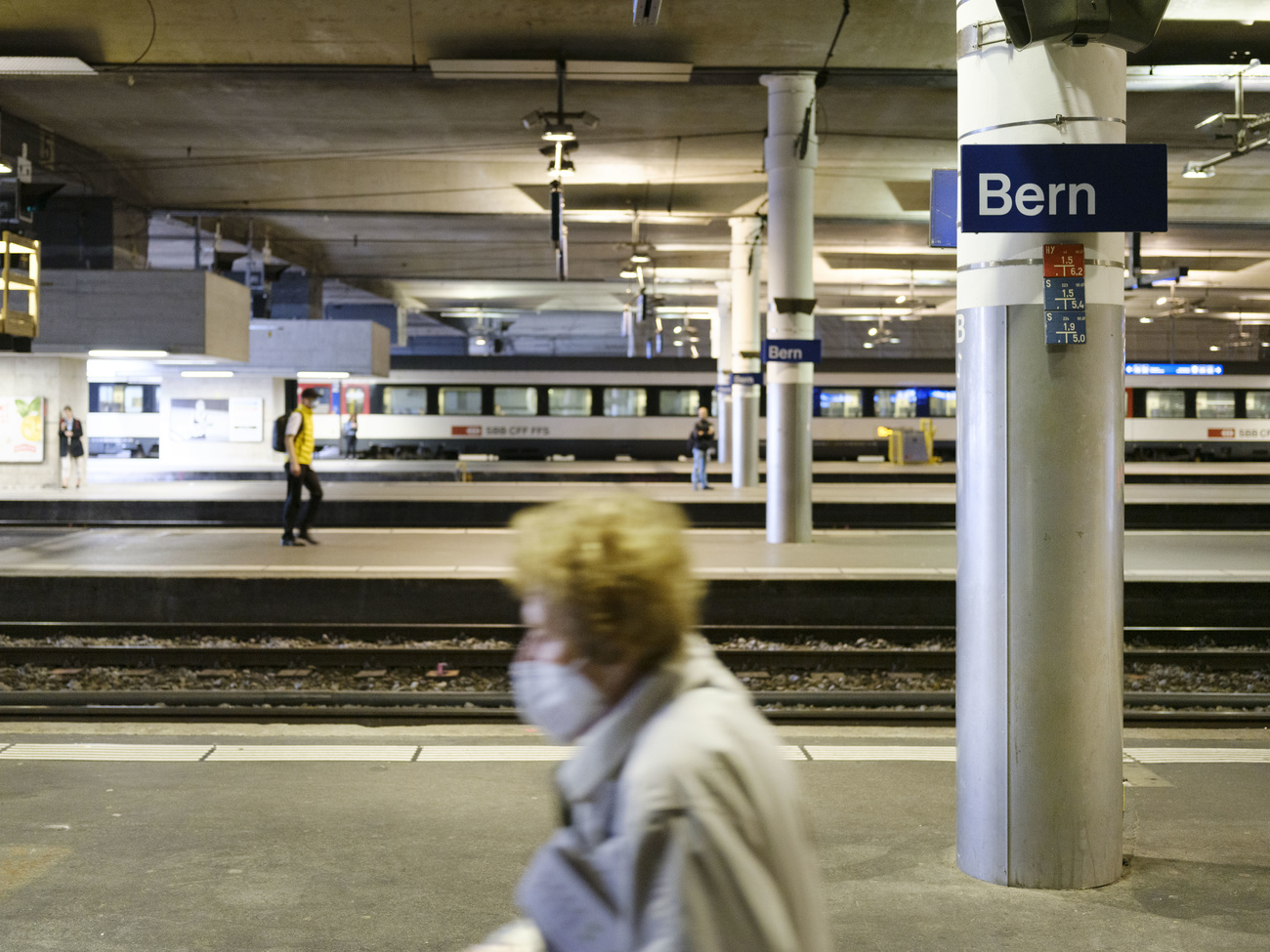
Up to 94% of Swiss train travellers going without mask

A study of passengers in major Swiss train stations has estimated that an average of 6% were wearing protective face masks on a normal afternoon last week.
The figures, which confirm anecdotal evidence and previous estimates provided by public transport authorities, were reported in newspapers owned by the Tamedia group on Thursday.
They are based on the observations made over two days last week by artificial intelligence company Swisstraffic, which set up cameras in Bern, Lausanne, and Zurich stations before using an algorithm to estimate how many people were wearing masks.
Between 15.30 and 16.30 on the afternoons of 10 and 11 June, an average of 3% of people in Bern, 8% in Lausanne, and 7% in Zurich were wearing masks. Of the total 10,231 detected by the cameras, the average was 6%.
The figures come as public transport usage continues to pick up after the successive loosening of measures to contain the Covid-19 pandemic. They also come amid ongoing debates about the utility or not of wearing masks to prevent the spread of infections.
Official guidance is to wear masks in public “when you can’t keep your distance [i.e. the two-metre rule]”. However, unlike in French and German public transport, there is no general obligation. Among the public, support for masks has dipped as new Covid-19 cases have decreased, although 50% of the population still supports mandatory mask-wearing some or all of the time on public transport, according to a survey published last week.
Nevertheless the report warns that the AI-gathered figures might not tell the whole story: since the Swiss Federal Railways didn’t allow the experiment to be done on board trains, the statistics only reflect the case in the stations themselves – which means people who remove their mask immediately after disembarking might not be included.
Numbers of mask wearers also vary at different times of the day: in the capital Bern, for example, where the average was 3% during the afternoon, the morning rush hour figure rose to 11%.
Tamedia, who commissioned the test, wrote that facial recognition was not used in the experiment and that the technology was developed with the safeguarding of privacy as its highest priority.

In compliance with the JTI standards
More: SWI swissinfo.ch certified by the Journalism Trust Initiative
















![The four-metre-long painting "Sonntag der Bergbauern" [Sunday of the Mountain Farmers, 1923-24/26] had to be removed by a crane from the German Chancellery in Berlin for the exhibition in Bern.](https://www.swissinfo.ch/content/wp-content/uploads/sites/13/2025/12/01_Pressebild_KirchnerxKirchner.jpg?ver=cb688ed5)














You can find an overview of ongoing debates with our journalists here . Please join us!
If you want to start a conversation about a topic raised in this article or want to report factual errors, email us at english@swissinfo.ch.